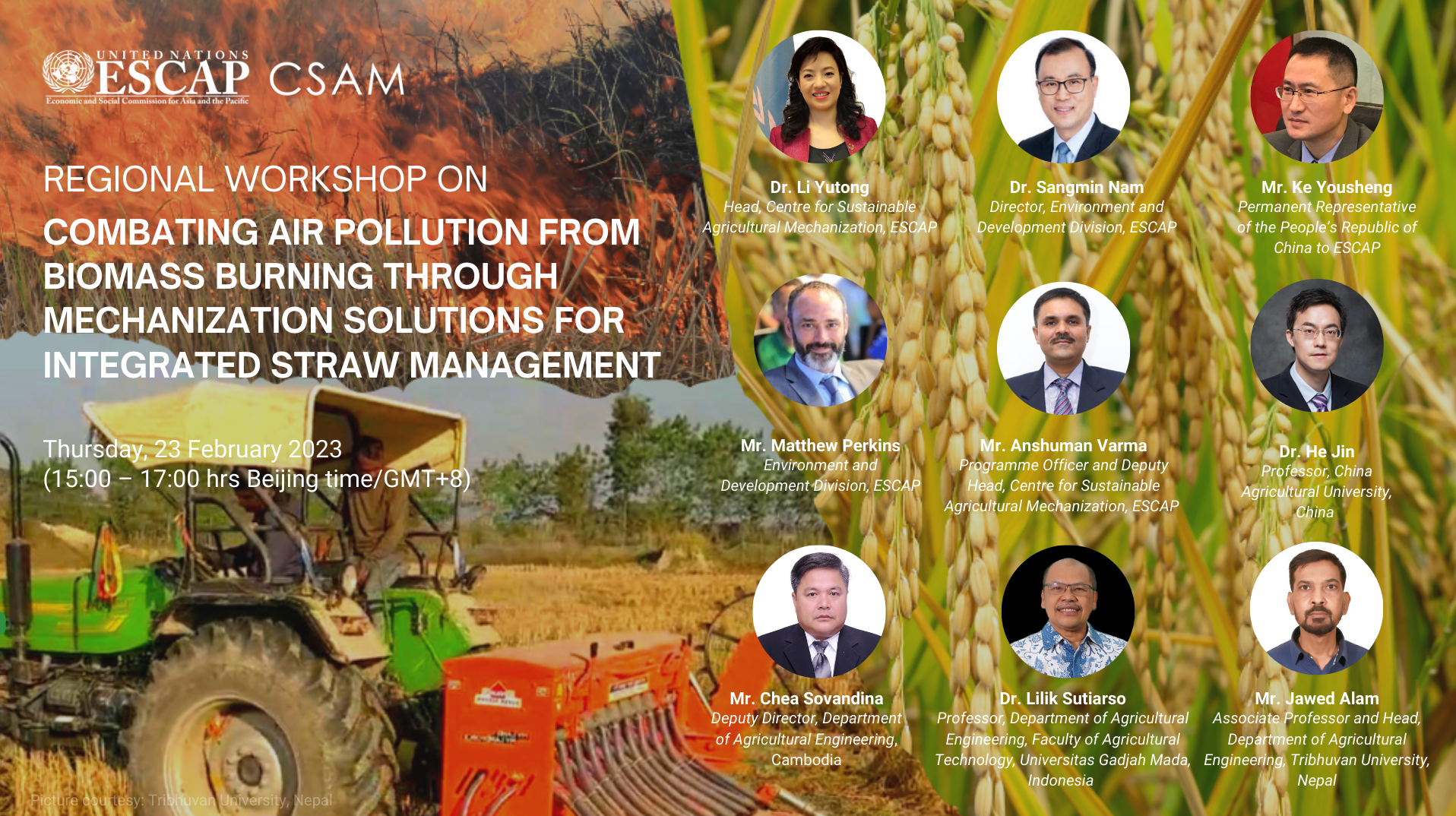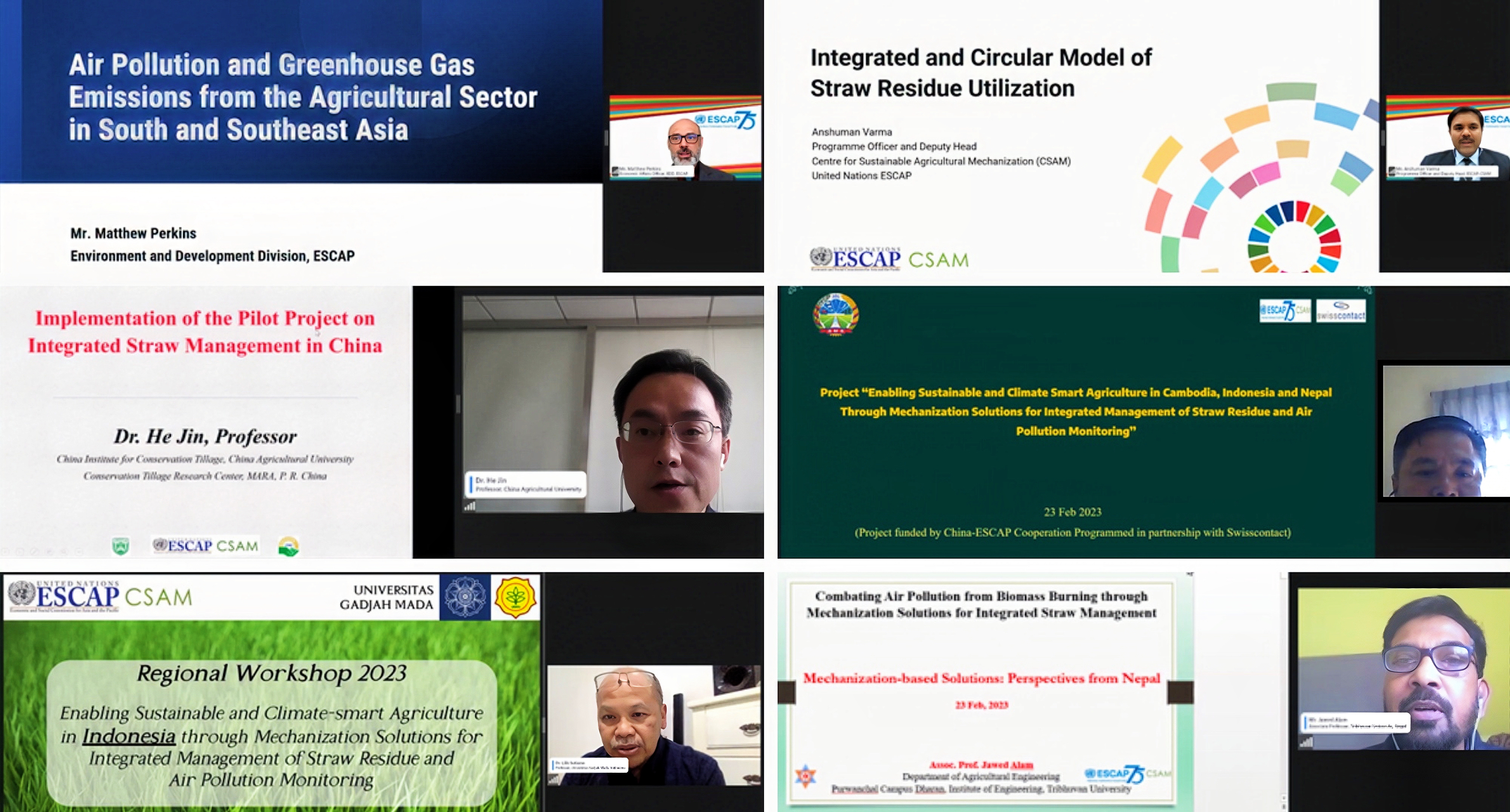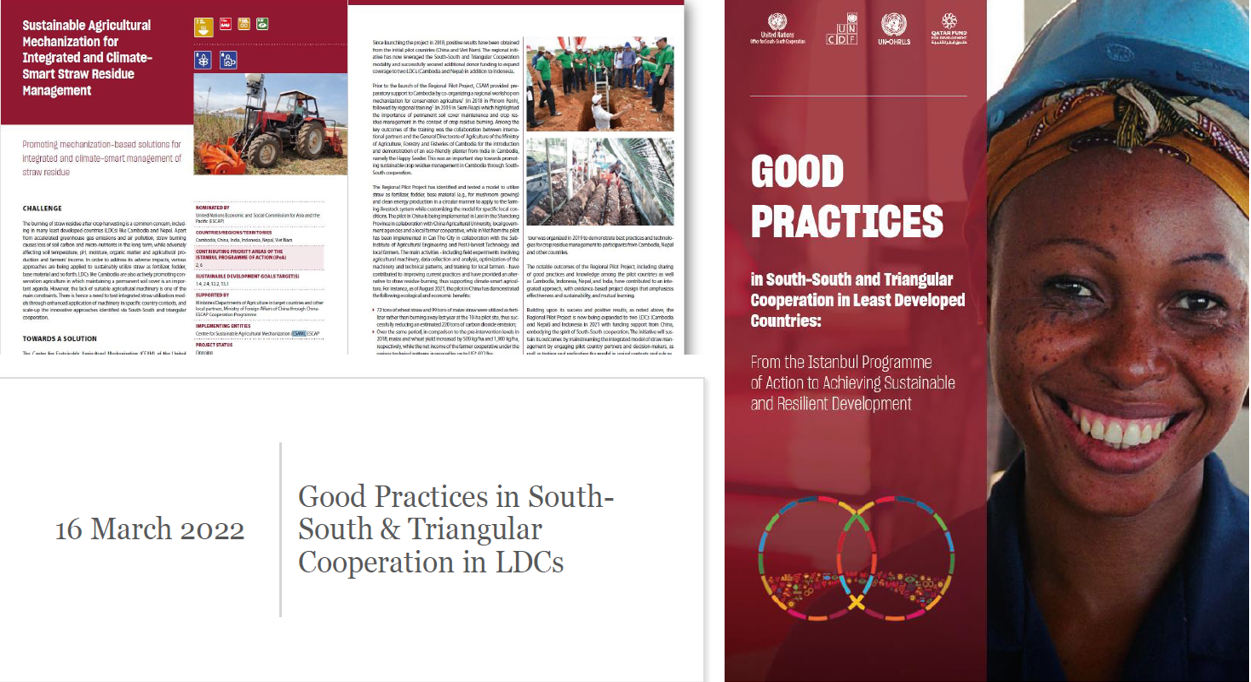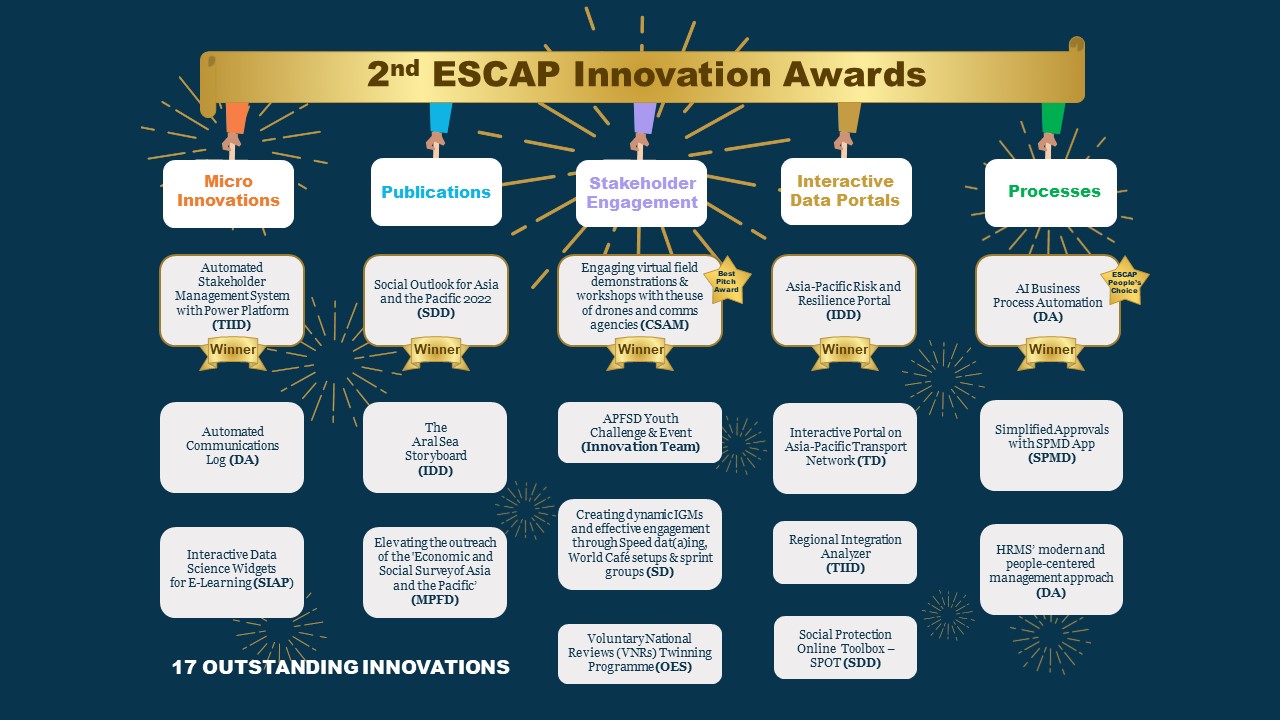ESCAP-CSAM Workshop Promotes Knowledge Exchange on Mechanization Solutions to Combat Air Pollution from Biomass Burning
Short Project Video Meeting DocumentsWorkshop Recording
A virtual ‘Regional Workshop on Combating Air Pollution from Biomass Burning through Mechanization Solutions for Integrated Straw Management’ was organized successfully today and attended by over 70 participants from the Asia-Pacific region and beyond.

The Regional Workshop highlighted the contribution of biomass burning to air pollution, enabled knowledge exchange on mechanization-based interventions for sustainable and integrated straw residue management, and examined the role of approaches to air quality monitoring and modelling.
The Regional Workshop also marked the end-of-project event of a two-year project of the Centre for Sustainable Agricultural Mechanization (CSAM) and the Environment and Development Division (EDD) of the United Nations Economic and Social Commission for Asia and the Pacific (ESCAP) titled ‘Enabling sustainable and climate-smart agriculture in Cambodia, Indonesia and Nepal through mechanization solutions for integrated management of straw residue and air pollution monitoring’ which has been financially supported by the China-ESCAP Cooperation Programme (CECP).
Under the project, pilot sites have been established in Cambodia, Indonesia and Nepal in cooperation with partners including the Department of Agricultural Engineering/GDA, Ministry of Agriculture, Forestry and Fisheries of Cambodia and Swisscontact-Cambodia; Universitas Gadjah Mada and Research Organization for Agriculture and Food, National Research and Innovation Agency, Ministry of Agriculture of Indonesia; and Tribhuvan University, Krishna Daana Udhyog, and Department of Agriculture of the Ministry of Agriculture and Livestock Development of Nepal. The new pilots have tested and demonstrated innovative, mechanization-based solutions for integrated straw residue management, enhanced the capacities of the local farming communities with emphasis on engaging women farmers, and facilitated regional knowledge exchange through overseas study tours as well as live online broadcast of a field demonstration. The project has contributed to efforts towards attainment of Sustainable Development Goal 1 (No Poverty), Goal 2 (Zero Hunger) and Goal 13 (Climate Action), among other Goals, in the region.
During the opening session, the gathering was addressed by Mr. Ke Yousheng, Permanent Representative of the People’s Republic of China to ESCAP, Dr. Sangmin Nam, Director, Environment and Development Division of ESCAP, and Dr. Yutong Li, Head of ESCAP-CSAM.

Keynote presentations were delivered by Mr. Matthew Perkins, Environment and Development Division of ESCAP, and Mr. Anshuman Varma, Programme Officer and Deputy Head, ESCAP-CSAM. In the following session titled ‘Perspectives from Country Pilots’ representatives from the pilots - including Dr. He Jin, Professor, China Agricultural University, Mr. Chea Sovandina, Deputy Director, Department of Agricultural Engineering (Cambodia), Dr. Lilik Sutiarso, Professor, Department of Agricultural Engineering, Faculty of Agricultural Technology, Universitas Gadjah Mada (Indonesia) and Mr. Jawed Alam, Associate Professor and Head, Department of Agricultural Engineering, Tribhuvan University (Nepal) - highlighted the activities implemented at their pilot sites and the positive results and learnings attained.

CSAM’s overall regional initiative on integrated straw management has been cited as a good practice in South-South and Triangular Cooperation by the United Nations Office for South-South Cooperation in March 2022, and a ‘virtual’ demonstration organized by CSAM also won an ‘Innovation Award’ from ESCAP colleagues in November 2022.


